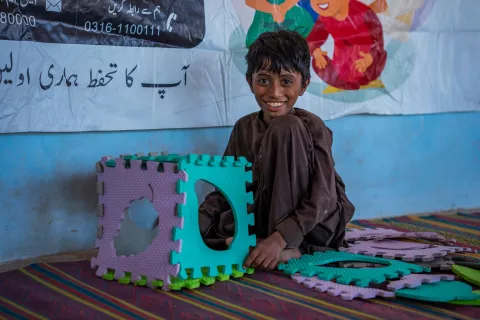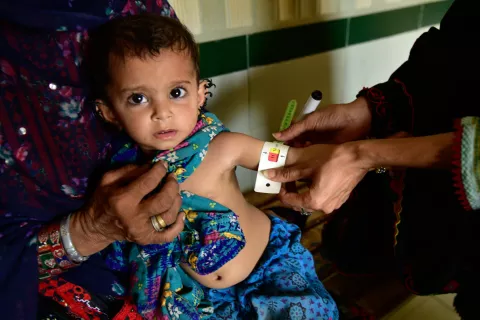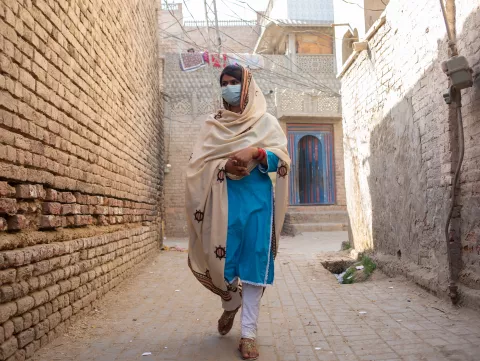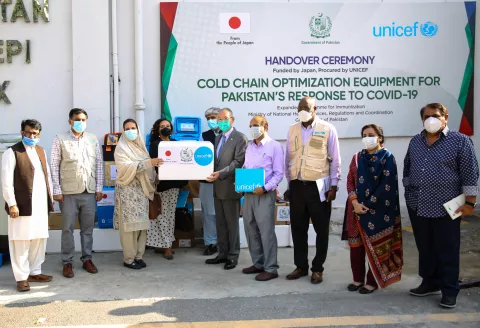How UNICEF Supplies helped protect health workers from COVID-19 in Pakistan
UNICEF has procured more than 50 million items of PPE for Pakistan since the start of the pandemic
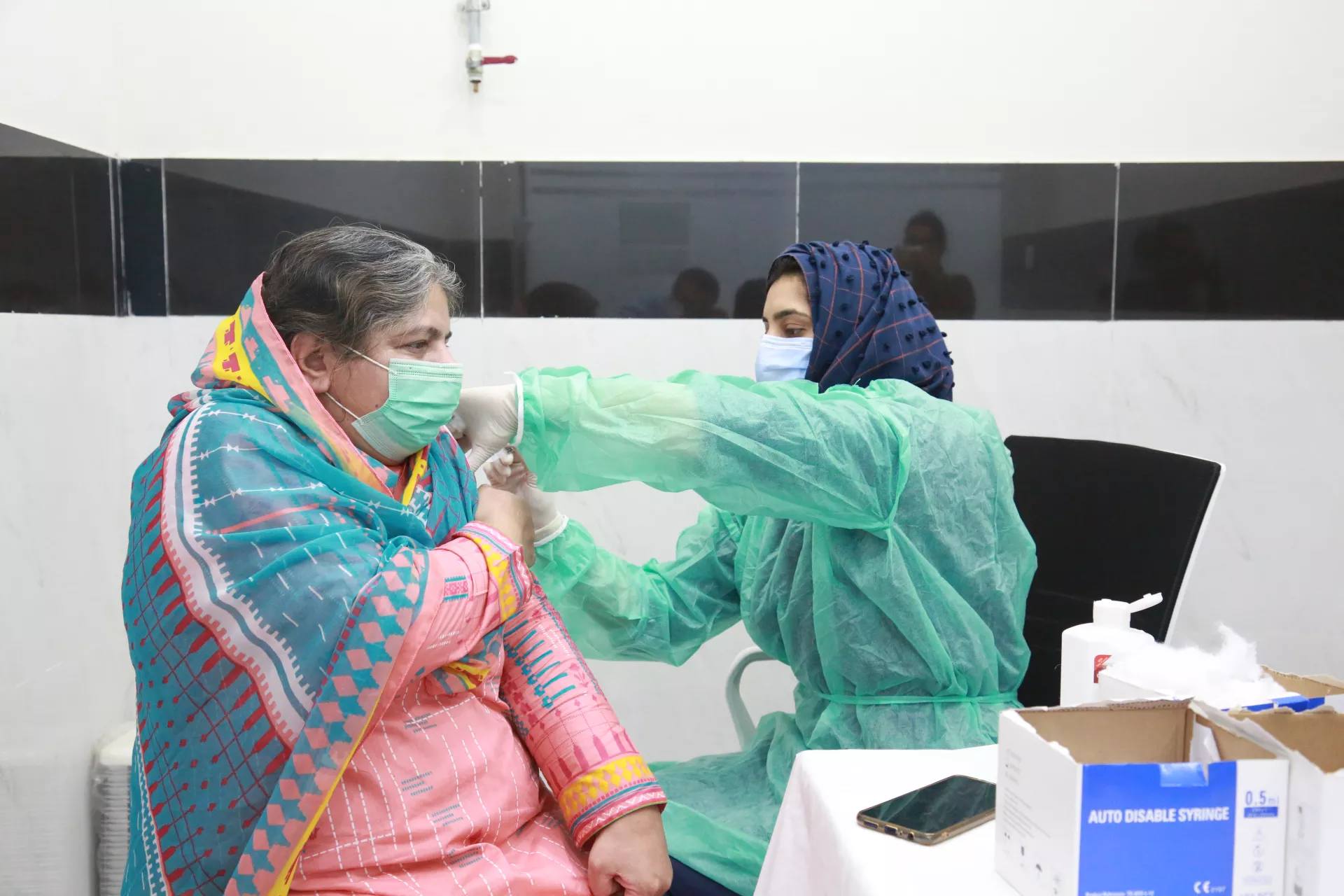
ISLAMABAD, Pakistan, 31 March 2022 – When the COVID-19 pandemic reached Pakistan in February 2020, health workers had to figure out how to stay safe from the virus as they cared for patients who had tested positive to the virus. The needed face masks, sanitizers and other personal protective equipment (PPE) in biggest quantities than ever, but there were not enough. The unprecedented global demand created shortages all around the world, including in Pakistan.
“When COVID-19 started spreading in the country, our duty as healthcare workers was to buckle down and get to work, helping tackle the influx of patients affected by the new virus,” says Dr. Zaeem Zia, District Health Officer in Islamabad. “Supplies of PPE were low, but we still had a job to do. It was scary. Many of our colleagues, who did not have protective equipment, were getting infected.”
In the early days of the pandemic, Pakistan was one of many countries which had to find a solution to procure quality-assured PPE and boost supplies.
To help find a solution, UNICEF quickly led a joint tender on behalf of 13 United Nations agencies. The goal was to establish long-term arrangements to supply PPEs to countries as they responded to the COVID-19 pandemic. The tender was successful and resulted in improved, consistent access to PPE supplies.
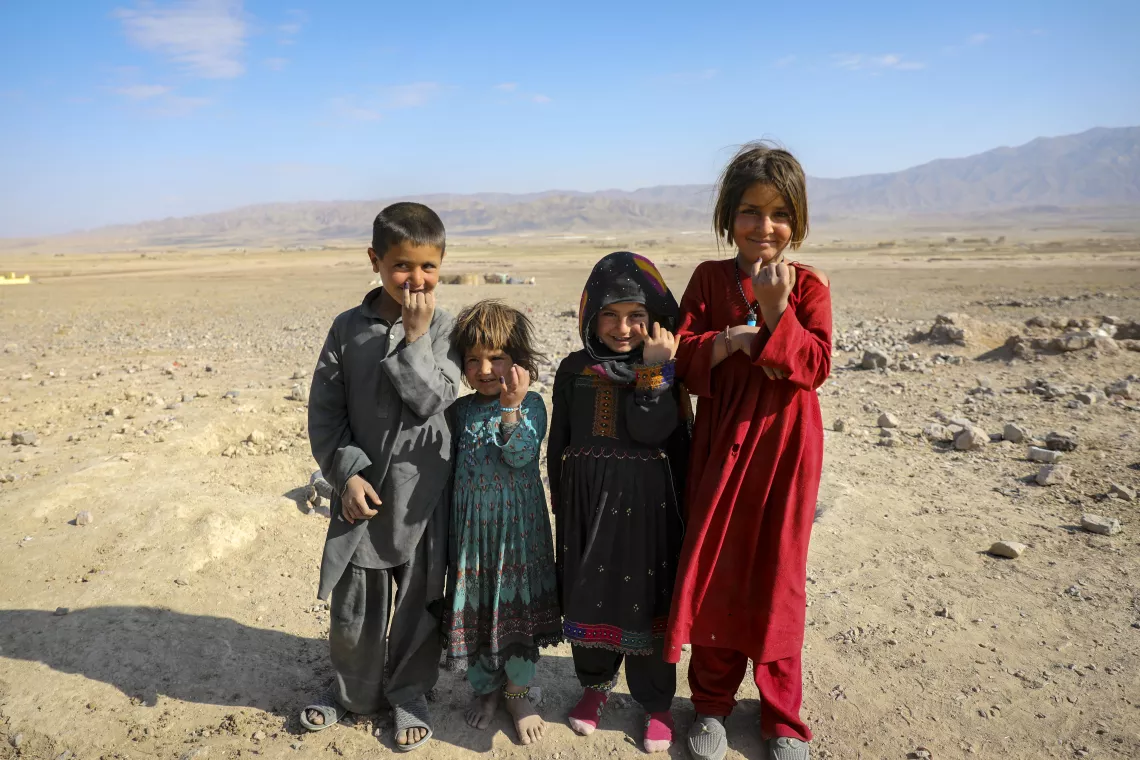
Since January 2020, UNICEF has procured more than 50 million items of PPE for Pakistan thanks to direct funding from
UNICEF and funding from donors such as Asian Development Bank, World Bank, GAVI and Unilever.
The Government of Pakistan distributed the PPEs to frontline workers across the country with support from UNICEF, helping keep them safe from the virus as they treated patients.
Among the items front-line workers received were face masks, gloves, gowns, goggles, face shields, surgical or bouffant caps, and boot covers.
“At the onset of the pandemic, UNICEF procured supplies related to personal protective equipment through its Global Supply Division. Once Pakistani firms started manufacturing PPEs, we also procured some locally,” says Matloob Malik, UNICEF Pakistan Procurement Services Manager.
Personal protective equipment proved crucial for the COVID-19 response, and beyond.
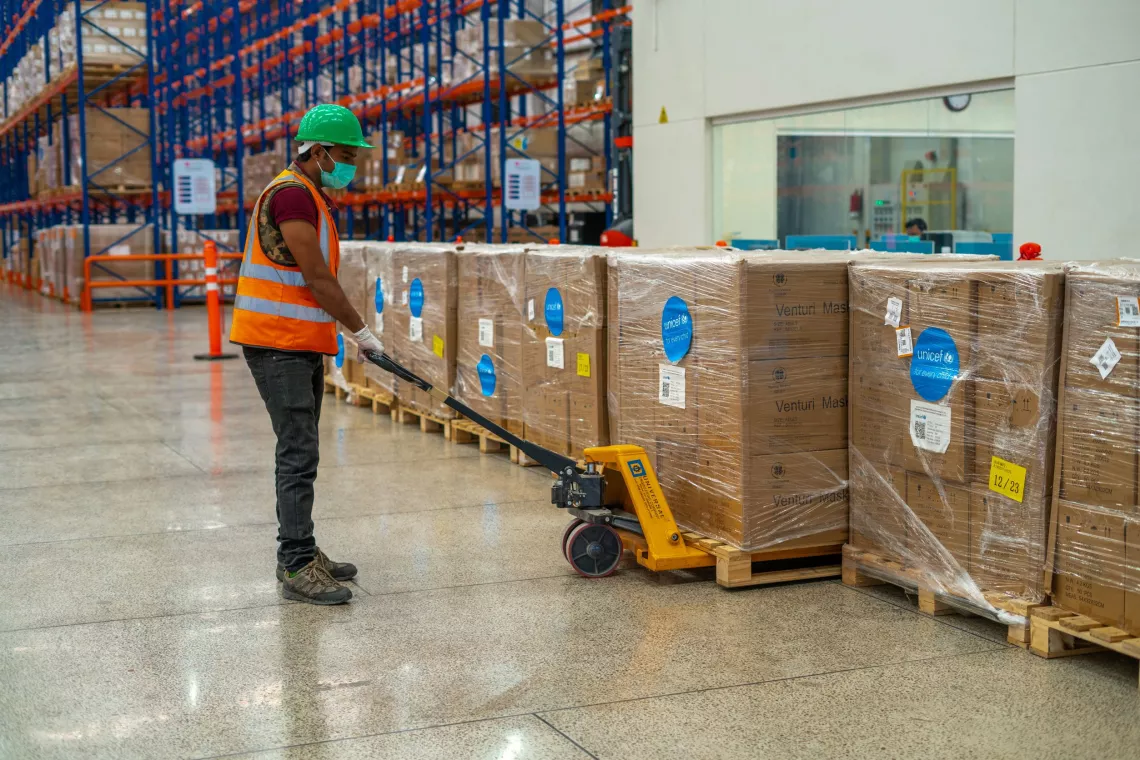
“Personal protective equipment is necessary not only to care for patients affected by COVID-19, but also to ensure the continuity of essential health services for children,” says Dr. Muhammad Jaohar Khan, UNICEF Pakistan Health Specialist.
The provision of adequate supplies was instrumental to help health workers safely resume basic services such as polio or routine immunization. Some of the PPEs were used during Pakistan’s mass vaccination campaign against measles and rubella, which reached more than 93 million children with support from UNICEF last year. Nearly 32 million children age up to 5 also received polio drops as part of the campaign.
The supplies are also being used as part of the Government-driven COVID-19 vaccination campaign supported by UNICEF. So far nearly 100 million people have been fully vaccinated, and more than 120 million have received a first dose.

